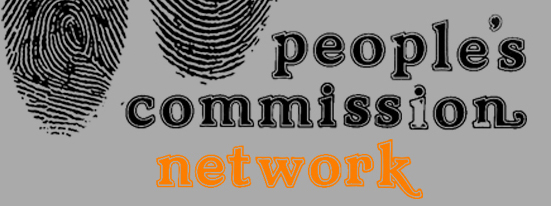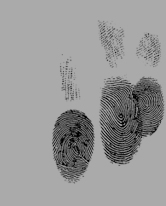Resources and Popular Education
What is CSIS?
Canada’s spies: the Canadian Security Intelligence Service (CSIS)
Download this document: (PDF) or (Microsoft Word)
What is CSIS?
During the 1970’s, RCMP was involved in a string of spectacular scandals, including burning down a barn, stealing explosives, planting explosives, illegal break-ins, and releasing a fraudulent “FLQ” manifesto calling for increased violence. In 1977, a federal commission –the MacDonald Commission-was established to investigate these “illegal and improper activities”.
The McDonald Commission report, released in 1981, recommended the establishment of a new domestic intelligence and security agency. In 1984, the Canadian Security Intelligence Service (CSIS) opened shop. While its official mandate was to protect national security from outside threats – at the time, the “communist threat” of the Cold War – it has played a central role in controlling dissent within national borders.
Garth Mullins, in Canada's Spy Agency: from Red Scares to Terror Alerts, notes that, “George Lopez discusses the ideology of national security in the context of Latin America in the 1960's, citing Pinochet's Chile and other extreme cases where torture, state violence and disappearances were justified in the ‘National Security Doctrine’. Although different in scale, this analysis has some application in the Canadian example. 1. The threat to security exists not so much amongst individuals as in ideas and social forces. 2. ‘As a value, security is superior to others (for example peace, justice and prosperity)’.” According to Lopez, “The only meaningful security issue is the survival of the state.”
In a report commissioned by the Department of Canadian Heritage in 2003, Margaret Beare notes that, “in the post cold-war environment, phrases such as ‘new security issues’, ‘non-traditional security threats’, ‘transnational crime threats’, and ‘regional security issues’ were used to express a broadening of the notion of insecurities. There was a tendency for critics to see some of the wider use of security rhetoric (i.e. the sweeping of former serious crimes into the national security net) as an attempt by national security agencies (CIA, CSIS, MI5, etc.) to secure their organizational futures...” (M. Beare, Policing With a National Security Agenda).
More recently, a tendency to shift various areas of crime control from traditional policing to security and intelligence agencies has allowed for decreases in accountability, transparency and public scrutiny.
Beare goes on to say that, “the emphasis on security did not start with September 11- it did, however, become a subject that tolerated no debate or criticism after that date... Foreign threats are easy targets rhetorically in get-tough policies. Immigrants are alien in both a literal and a figurative sense and any exceptional legislation or police powers adopted to counter their activities are argued to be justified due to the uniqueness of their threat ... there is little appreciation that a national security focus might actually be in direct contrast with human security interests...”
Why should you be concerned about CSIS?
CSIS plays a very quiet but key role in creating a climate of fear and suspicion which legitimizes racism, the repression of dissent and increases in state power; provides the context for the criminalization, oppression and exploitation of immigrants; and justifies foreign occupation.
CSIS is so secretive, most Canadians have never even heard of the agency. Under cover of “national security”, much of what the agency does is shielded from public scrutiny. This has allowed it to act with virtual impunity, despite repeated violations, and despite the existence of an oversight body, the Security Intelligence Review Committee (SIRC).
Scandals … and business as usual:
Maher Arar. Documents divulged in the Arar inquiry reveal that CSIS believed "the U.S. would like to get Arar to Jordan where they can have their way with him," as early as two days after Mr. Arar was deported by the US to Jordan, and then on to Syria, where he was tortured and imprisonned for nearly a year. According to the Arar inquiry report, CSIS nevertheless visited Syria and met with Syrian intelligence agents during Arar’s incarceration, even passing on questions to be posed to Arar. The information Arar provided under torture was then passed on to CSIS, who in turn passed it on to other Canadian authorities. CSIS's position during this period was that Arar should not return to Canada. Syrian authorities were aware of the position of CSIS, despite Canada's official demand that Arar should be released immediately. Arar is one of several individuals who have gone public with similar stories, including Benamar Benatta, Abdullah Almalki, Ahmad El Maati, Muayyed Nureddin and Abousfian Abdelrazik.
Security certificate cases. Security certificates are a “legal” way of doing the same thing that was done to Arar, Benatta, Almalki, El Maati, Nureddin and Abdelrazik: on the basis of secret suspicions, attempting to send people to places where it is known they will be tortured and in the meantime keeping them in indefinite detention. CSIS is the government agency which prepares security certificate cases. Even within the fundamentally flawed framework of the certificate, CSIS has been mired in several scandals, including the destruction of evidence, and possible involvement in media leaks. CSIS has been accused of using information obtained under coercion and torture in these and similar cases. For example, CSIS is known to have introduced information obtained from Abu Zubaydah-the poster boy of the CIA’s “black sites” programme-into the Charkaoui case. CSIS continues to deny that it uses information obtained under torture, but in November 2005, SIRC reported that CSIS was in no position to make "an absolute assurance" to the government that information it receives from allied spy agencies is not obtained as a result of torture.
Air India. CSIS destroyed key wiretap evidence and those responsible were not brought to justice. A suspected CSIS mole, Surjan Singh Gill, was identified by the RCMP as one of six main suspects in the bombing. The RCMP believed that he had the explosives and airline ticket with him shortly before two bombs were apparently checked onto flights in Vancouver. Gill left Canada in 2000 and has never been charged. (Globe and Mail, 4 June 2003).
Bhupinder S. Liddar. CSIS was caught lying to SIRC (in SIRC’s words, the agency “purposefully misled” SIRC in order to "suppress information that was embarrassing to the Service") to cover up its errors in the Liddar case. SIRC reported that CSIS had conducted a “hasty, slipshod investigation” and had ‘a regrettable’ attitude that supporting Arab causes can be suspicious.” (Globe and Mail, 14 September 2005).
Targeting Unions. During the 1980s and 1990s, CSIS spied on the Canadian Union of Postal Workers (CUPW). Former CSIS officer John Farrell confessed that, as CUPW engaged in the difficult negotiations leading to the strike of 1991, he and fellow officers prepared dossiers on "troublesome" CUPW leaders. They sought and received authorization to intercept every piece of mail delivered to the homes of targetted labour organizers and to inspect their garbage. They illegally planted a listening device in a postal station and stole keys from a postal depot to break into apartment buildings and mail boxes (Andrew Mitrovica, Covert Entry: Spies, Lies and Crimes Inside Canada's Secret Service). CSIS has always denied these activities. CUPW was not the only union of interest to CSIS. Marc-André Boivin infiltrated Quebec’s CSN for 15 years - first for the RCMP and then for CSIS. Boivin was involved in making bomb threats during a hotel strike.
Heritage Front. Grant Bristow, one of the founders of the neo-Nazi group Heritage Front was employed for five years by CSIS. According to an article by Bill Dunphy of the Toronto Sun, Bristow was supposed to be working as a mole for CSIS, while serving as the intelligence chief and co-director of security for the Heritage Front. However, his active role in hate activities has raised questions. Bristow allegedly ran a programme of harassment against anti-racists in Canada, and provided the Front with personal information on them.
Racial profiling, harassment and abuse of immigrants and racialised communities. As part of a "securitization" of immigration and the portrayal of migrants as potential threats, CSIS is increasingly involved in the immigrant exclusion process. They are part of the process from the time someone applies to enter Canada until long after they have citizenship: surveilling, gathering information, creating files, developing profiles, writing and passing on secret reports.
Frequent complaints are made not only about general harassment, but also about the specific behaviour of CSIS. Agents have been known to show up at an individual's door late at night. As SIRC reports indicate, CSIS agents regularly fail to inform the individual of their right to have an attorney present.
According to the National Council on Canada-Arab Relations (NCCAR), students of Arab origin are being approached by CSIS agents on campus for questioning. They have reportedly been threatened with deportation and revocation of their status if they fail to provide information about community members (“In The Shadow of The Law”, a report by the International Civil Liberties Monitoring Group (ICLMG), 2003).
Toronto immigration lawyer Faisal Kutty elaborates, “Showing up at homes and workplaces unannounced; offering money and favors for "information"; intimidating and threatening newcomers; inquiring about a person's religiosity; and discouraging people from engaging lawyers are some of the recurring themes that I have come across from clients.” (Faisal Kutty, “The Dirty Work of Canadian Intelligence”, April 2004)
The Council on American Islamic Relations (CAIR-CAN) has distributed tens of thousands of “Know Your Rights” guides and organized workshops across the country to help community members deal with CSIS and the RCMP. A community survey conducted in 2004 by CAIR-CAN reports that security officials were using, “troubling tactics” such as “discouraging legal representation, aggressive and threatening behaviour, threats of arrest pursuant to the anti-terrorism act, visits at work, intrusive and irrelevant questionning, improper identification, informant solicitation, and interrogation of a minor.” (CAIR-CAN, “Presumption of Guilt”, 2004).
Just like the RCMP before it, CSIS has been involved in a number of high profile scandals. But it is the every day, unreported harassment of targetted communities and profiled individuals which perhaps takes the heaviest toll.

The People's Commission Network is a working group of QPIRG-Concordia qpirgconcordia.org 514.848.7585 info@qpirgconcordia.org

Contact the People's Commission Network: QPIRG Concordia - Peoples's Commission Network c/o Concordia University 1455 de Maisonneuve Ouest Montreal, QC, H3G 1M8 commissionpopulaire@gmail.com
This website is based on the Fluid 960 Grid System




